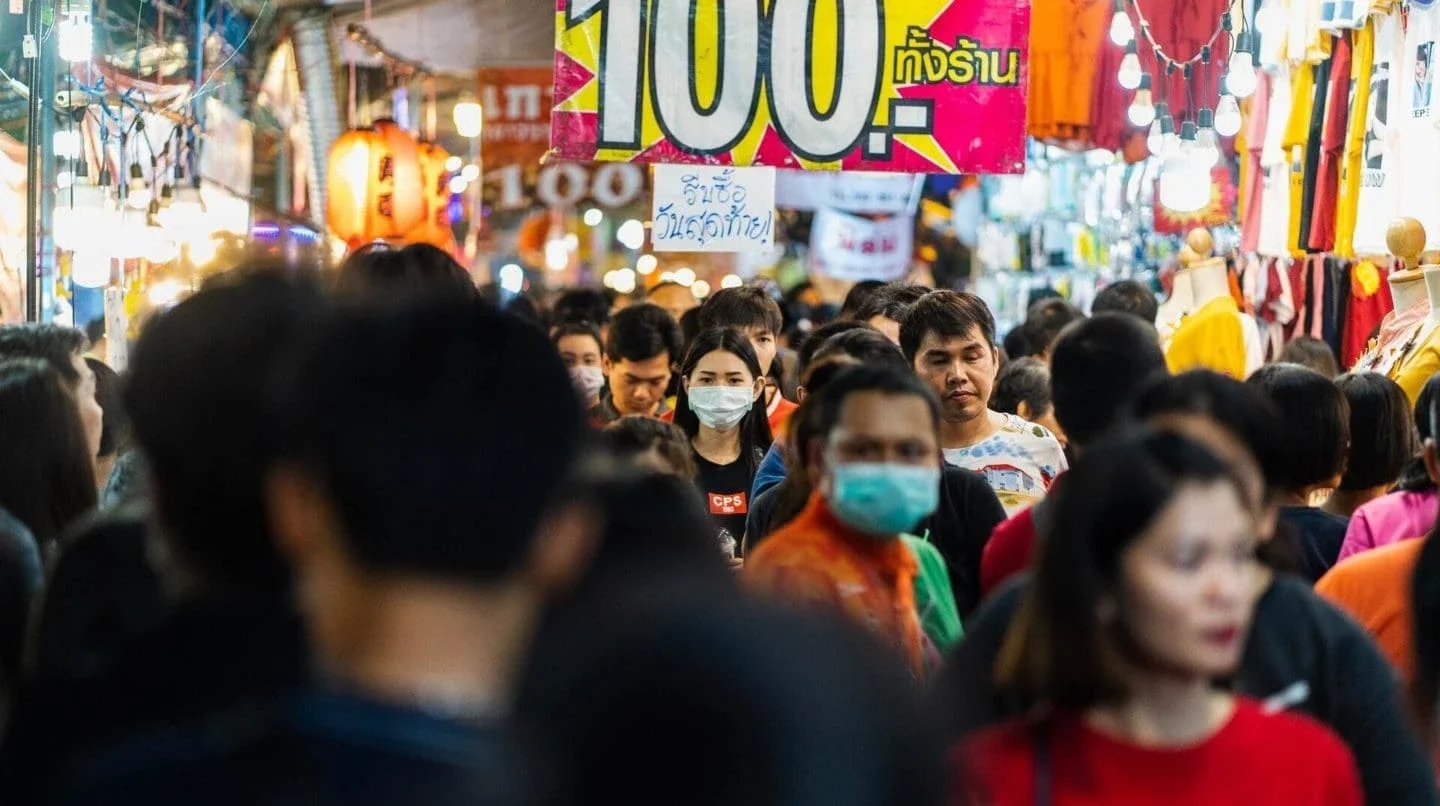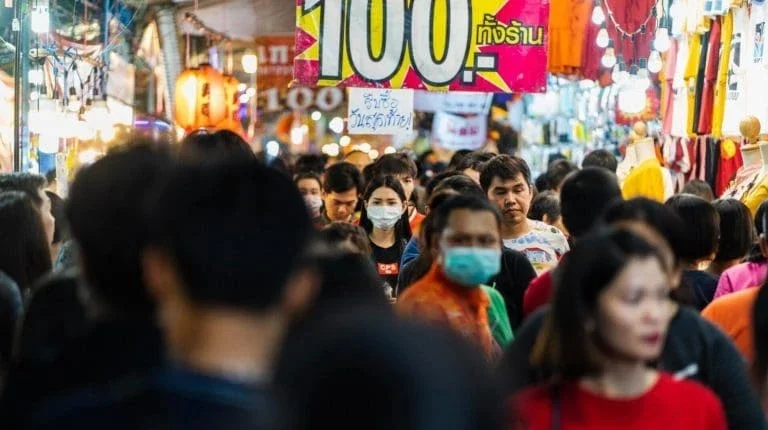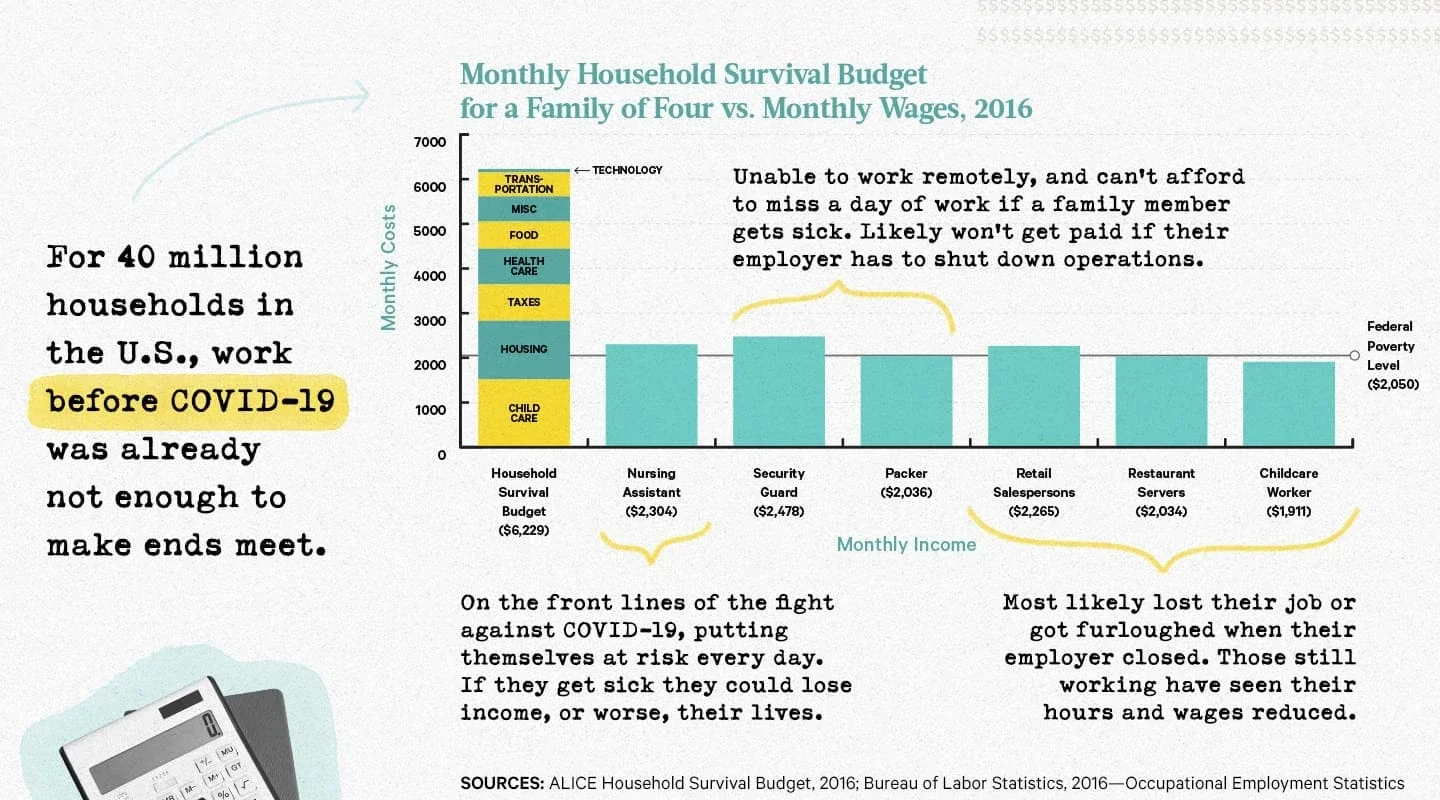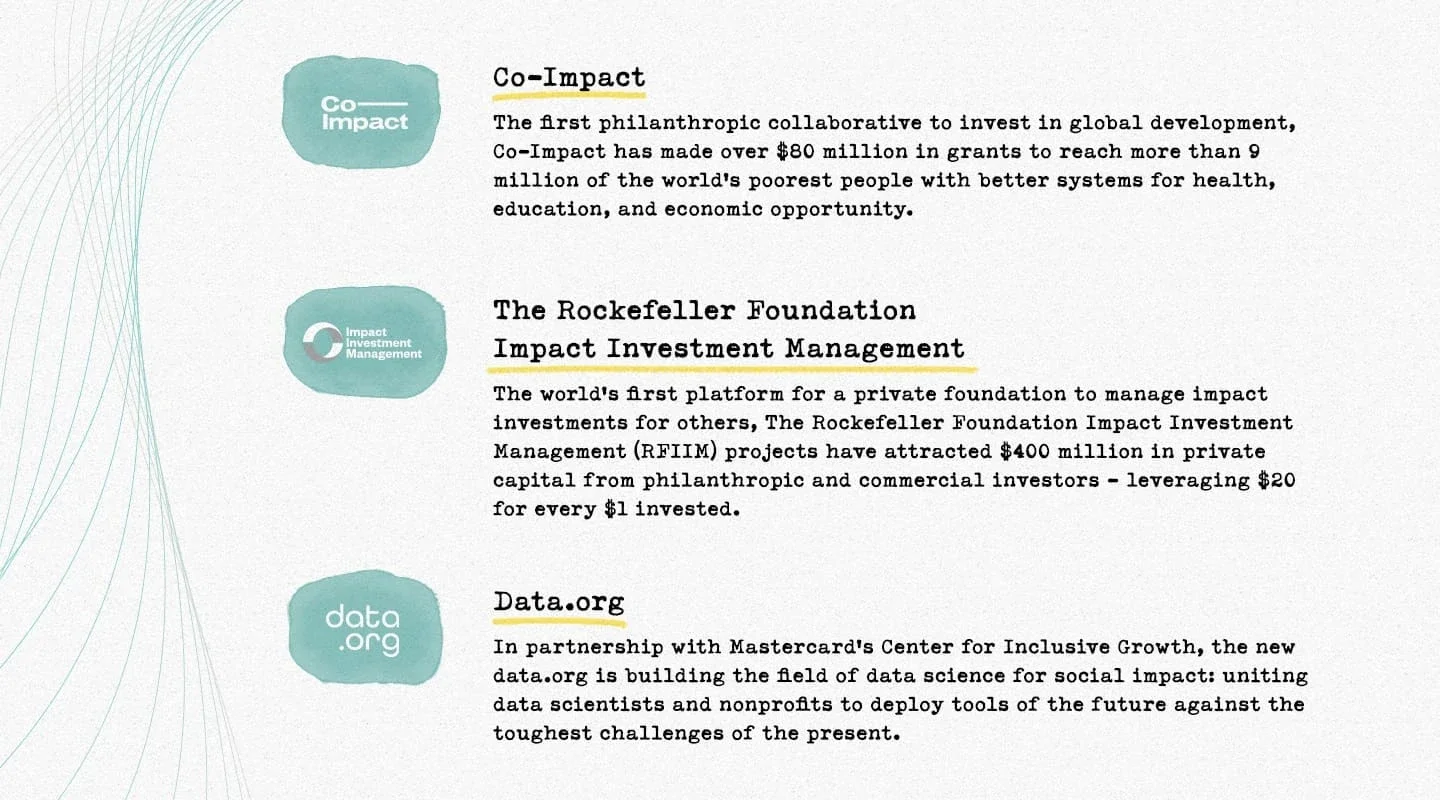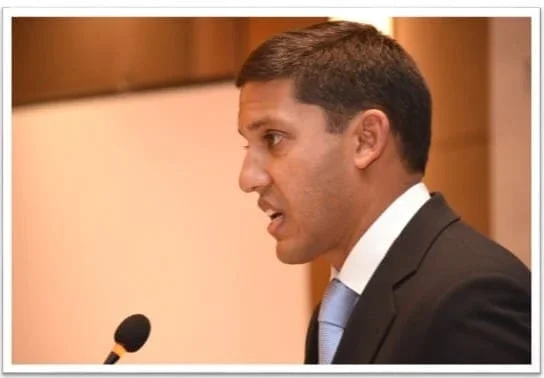
When I sat down to write this letter, I had hoped to lay out our vision to end energy poverty for hundreds of millions of people, save millions of lives that are lost to preventable disease, build a more sustainable and nourishing food system, and rekindle the American Dream for so many families who have been left behind by decades of change. I had also intended to describe some of the ways in which we had restructured our foundation and our work to achieve these goals.
But right now, we’re living through a pandemic of devastating speed, scale, and severity. Meeting this moment will take all of us working together to overcome the crisis and resolve the deeper inequalities it has exposed.
At the onset of any pandemic, there’s an effort to understand the many things we don’t know about the disease: How does it spread? What and who does it attack? Which diagnostics, treatments, and vaccines are effective against it? What will it take to recover, rebuild, and put all of this behind us? But as the global community searches for answers, I can’t stop thinking about everything we do know and have known for years—and all the ways the world failed to put this knowledge to use.
After the Ebola crisis of 2014, several credible, affordable plans to protect the world from a pandemic were developed and then shelved. Each of those plans highlighted that a proper early warning system, coupled with real investments in global preparedness and expansions of public health coverage in resource-poor countries, would prevent pandemics and save lives.
Meanwhile, here in the United States, we’ve known for years that nearly half of American families are deeply vulnerable to any health and economic crisis, and yet we have not embraced the practical bipartisan policies that would have supported the very people—disproportionately poor and people of color—who are now at greatest risk of losing their livelihoods and their lives.
While this virus may be a natural phenomenon, the crisis it both reveals and exacerbates is manmade. This moment must be a wake-up call and a turning point in the way we prevent and address calamities like this in the future.
In recent weeks, The Rockefeller Foundation has focused on bringing scientists, business leaders, and government officials together: to accelerate the response to this pandemic and prevent the next one; to fight the existing and emerging crisis of hunger and malnutrition that we see rising at home and around the world; and to help workers, families, and vulnerable communities get through this moment and emerge with greater opportunity than they had before.
We will be committing at least $50 million over two years in support of these goals, because the time to act is now. These resources enable our partners in Asia, Africa, and the United States to march into the thick of the fight against the coronavirus and make a difference right now.
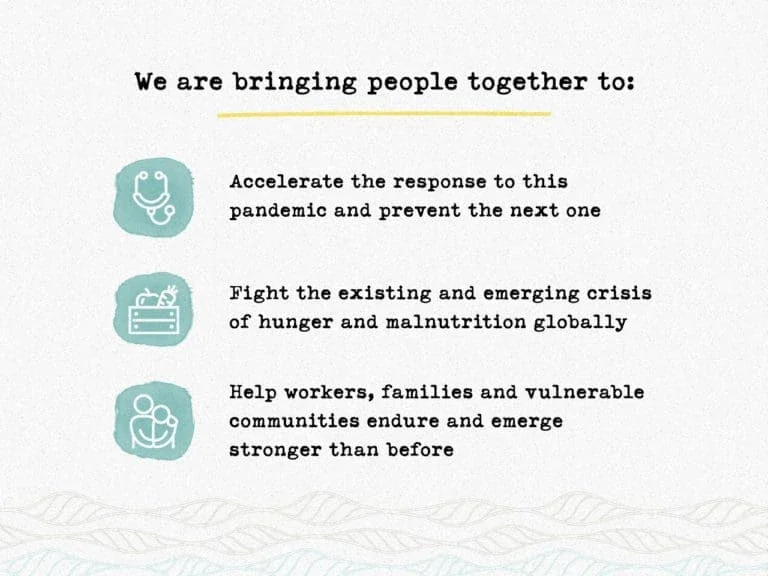
At a time when we need to support our communities and deliver results quickly, it’s these partners that give me hope.
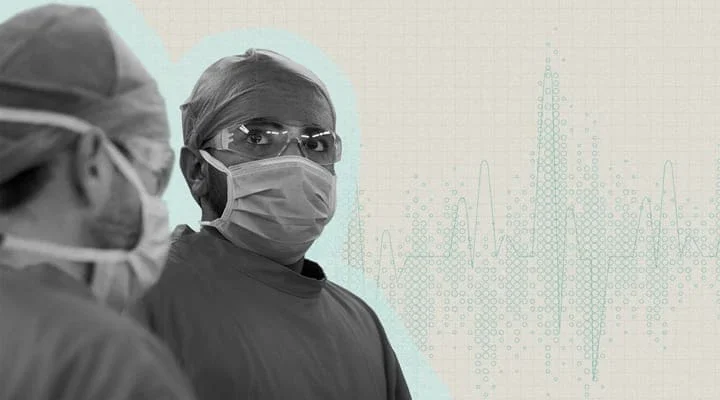
Protecting Public Health
When The Rockefeller Foundation was founded, the field of public health—the very idea that we’re all connected, and that together we can prevent diseases like the one sweeping across the globe today—was a foreign concept.
This Foundation helped invent the discipline that exists today. We created tests and vaccines, and built a network of thousands of scientists, doctors, and community health workers around the world. Today, thousands of scientists (some of whom received their training via Rockefeller Foundation grants and refer to themselves as “Rocky Docs”), first responders, and frontline health workers are working against the clock to protect all of us, often at great personal risk.

Six years ago, I saw the efforts of these health workers when I led the U.S. response to the Ebola epidemic in West Africa.
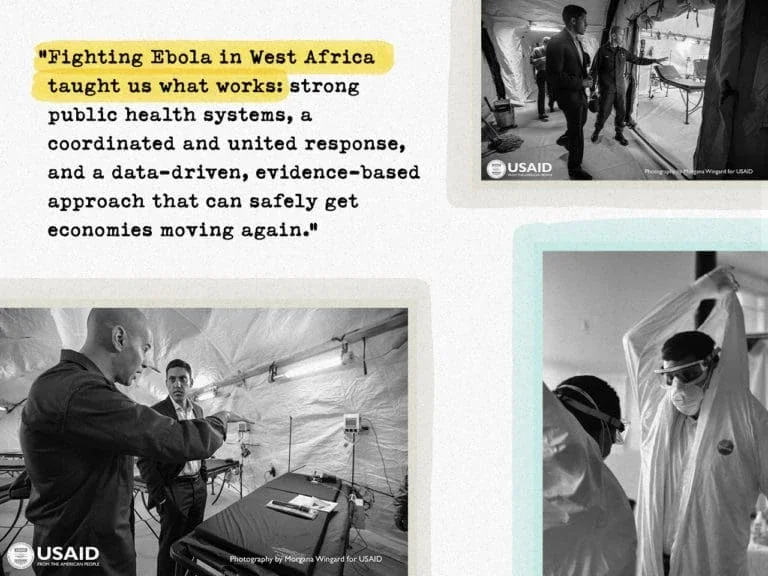
That crisis taught us invaluable lessons: We all have to work together in a strong, effective, united, and coordinated response. We have to move immediately from posturing, politics, and panic to a data-driven, evidence-based approach that can safely get economies moving again. And, strong public health systems save lives.
To that end, our efforts to accelerate the response to the Covid-19 pandemic and prevent its reemergence are focused on four areas that, taken together, will enable us to beat back the virus now, reopen the economy safely, and prevent the next pandemic.
First, in the absence of an effective nationally-coordinated response, we are working with cities and states in the U.S. to use science and data to protect people. In southern California we’re supporting Mayor Eric Garcetti’s partnership with CORE to expand testing capacity in Los Angeles and make it a smooth, equitable, and accessible process. In New York, we’re supporting Mayor Bill DeBlasio’s efforts to protect health workers on the front lines in New York City. Our partners at the Global Resilient Cities Network are also helping cities share best practices and lessons they’ve learned in fighting the coronavirus. When—not if—there are resurgent waves of this virus and others, we need mayors and governors to be equipped with the tests, supplies, technology, and staff to keep people safe and the economy on its feet.
Second, we are working to rapidly expand access to testing to help re-start the economy. We have brought together epidemiologists and economists, ethicists and biotechnologists, scientists and government leaders to develop a National Covid-19 Testing Action Plan—both for diagnostic testing, and serology testing, which identifies antibodies in the blood to tell us who has been infected in the past and maybe less susceptible to reinfection. This effort will give us better options than simply locking down our entire economy or allowing activity at tremendous risk to the most vulnerable amongst us.
Third, we are working to build public-private coalitions that can procure and distribute personal protective equipment (PPE) in a sustained and active way, because this is core to both delivering testing and protecting the frontline health workers who are trying to protect us. The failure to do so thus far is unconscionable. By building bridges between our existing public health partners and major companies and banks, we are working to expand the capacity of supply chains to produce and distribute these critically-needed protective commodities—here in the United States, and particularly in Africa.
And finally, we are helping create an early warning and response system to address the potential reemergence of Covid-19 and prevent future pandemics. This will truly require all of us working together, which is why we are partnering with the UN Office for the Coordination of Humanitarian Affairs, Johns Hopkins University, UNICEF, the World Health Organization, public health emergency operations centers in Africa, technology companies, governments, international organizations, and other foundations to make sure this never happens again.
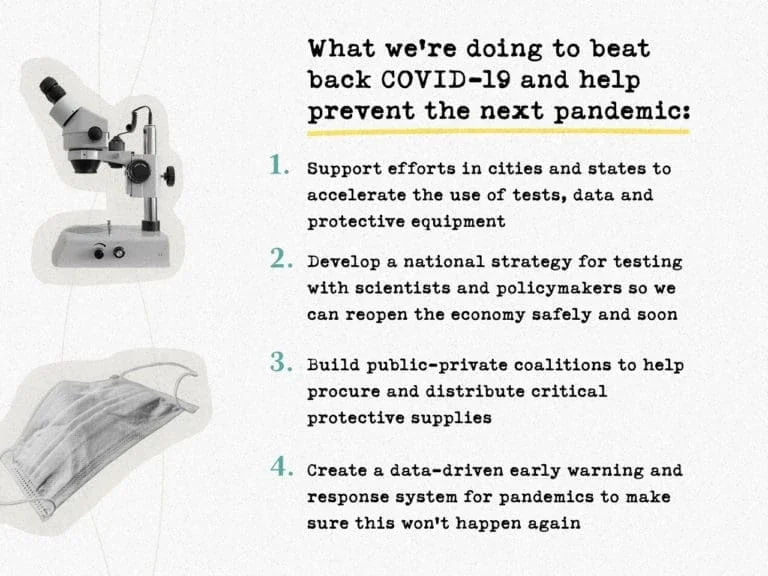
Going forward, The Rockefeller Foundation’s work on pandemics will be dedicated to making sure the world has a viable system to prevent the resurgence of Covid-19 and future pandemic threats, and the tools necessary to act decisively when outbreaks occur. Through our Precision Public Health initiative, we will continue to strengthen community health systems using data science and analytics around the world to save the lives of mothers and children—because that is essential to building a world where no child dies of simple diseases, where every mother survives childbirth, and where all of humanity has an equal chance at a full and hopeful life.
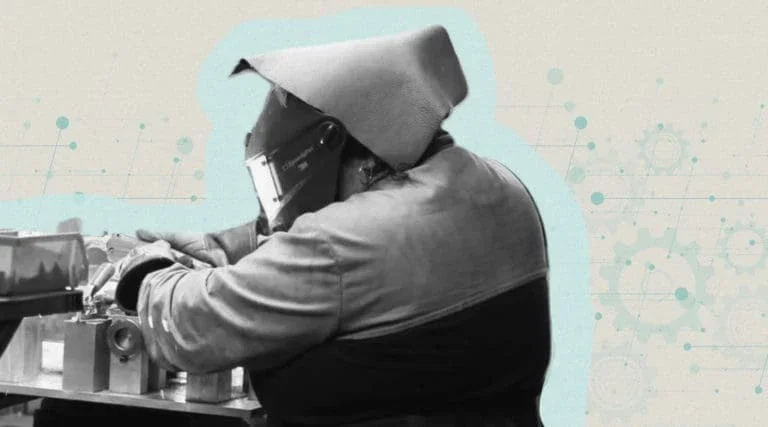
Fighting Hunger and Enabling Economic Opportunity
There’s one photo that my wife Shivam and I can’t stop talking about. It made the rounds of our social media feeds at the end of March.
Social distancing? Containment? Manhattan bound 5 train at 840 today. Brown and black folk performing essential work at risk. @NYCMayor @NYGovCuomo @MTA @BuzzFeed @Gothamist @WajahatAli @NYCTSubway @nyc311 @nytimes @washingtonpost @NY1 @SenSchumer @NYC_DOT @BrianLehrer @AOC pic.twitter.com/laW7dk0cwm
— Hiam Abbas (@showmetheequity) March 30, 2020
When this photo was taken, on a New York City subway train, the city had been locked down for over a week. Makeshift morgues were parked outside city hospitals. That very day, there were over 75,000 coronavirus cases in New York State, and over 330 New Yorkers died. In the image, however, passengers still sit and stand in close quarters, some wearing masks, some not, as they head to work. Almost all are people of color.
That so many Americans must choose between their lives and livelihoods is an injustice. That they have to make this choice under extreme economic distress—while working jobs that don’t even allow them to make ends meet—is an outrage.
The situation that millions of Americans find themselves in today is no accident. Since the early 1980s, corporate profits as a share of the economy have nearly doubled while wages and salaries for working families have fallen by the same amount as a share of GDP. Despite significant improvements in labor productivity, American workers have not gotten a raise in four decades.
Today, nearly 90 million Americans live in families headed by someone who works but can’t pay their bills each month. Many of these are the low-wage workers who were always essential to American life, but who we now recognize as a lifeline. Those who haven’t lost jobs are currently enabling millions of Americans to stay safely in their homes, but they are still not getting paid enough to provide for their families—let alone give their kids a better future.
This is not only a result of globalization and technology. It is what happens when you have a system that for over 40 years has created preferences for those who possess capital over those who provide labor.
That’s why we recently launched an initiative on Equity and Economic Opportunity to widen the path to economic stability and mobility for millions of low-wage workers and their families. We are working with cities and states across the country to test innovative ways to create a fairer economy. And we’re working with policy partners on the right and the left to advance bipartisan policies that can lift up all of America’s workers and families.
The coronavirus crisis has exposed and exacerbated America’s existing vulnerabilities. Thirty million children rely on meals provided at school—schools that are now closed indefinitely. Food banks are seeing demand surge by 40%, while food donations have declined by 40-60% in recent weeks, yet our supply chain is dumping food supplies. It’s a cycle that becomes even more vicious when combined with the fact that food banks are seeing volunteer shortages as many of their volunteers, who tend to be older, shelter in place. While people who have ample funds have increased their grocery purchases by 80-200% over this time last year, a frequently repeated statistic has become chillingly visible: nearly 40% of households are unable to find $400 in an emergency. Today, the emergency is here, the $400 is still missing, and American families are going hungry.
The Rockefeller Foundation is committed to making sure every family in America can access the resources they need to weather this crisis. So is our network of grantees and partners.
In recent weeks, the Center on Budget and Policy Priorities and the Niskanen Center came together to work with Congress on solutions that could help American families struggling as a result of the crisis, including direct cash payments. And the Coronavirus Aid, Relief, and Economic Security (CARES) Act has since expanded the number of American families eligible for those solutions, such as the $1,200 stimulus payments many need right now.
We have long known that direct cash payments to working families are among the most effective anti-poverty tools in the country, which is why they should be made permanent.
The data bear this out. Combined, the Earned Income Tax Credit and Child Tax Credit lift 10.6 million people out of poverty—more than any program other than Social Security. Sixty-five percent of the people who benefit from these programs are women of color, who use these funds to provide food, shelter, and healthcare for their families. Expanding and modernizing these programs, which our grantees are working to do at both the state and national level (and have already successfully done in states ranging from California to Maine), will help millions of America’s low-wage workers and families meet their basic needs and begin to climb the ladder of opportunity.
We are also ensuring that every family that qualifies for benefits receives them.
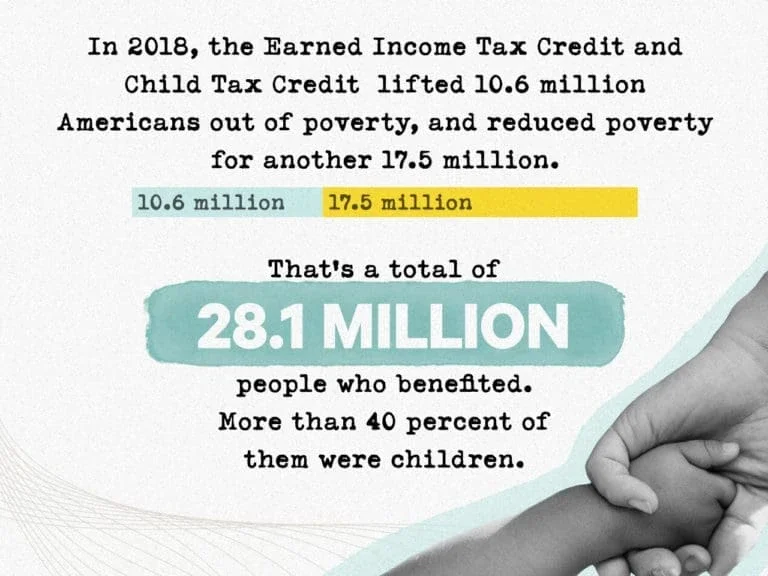
Today the American system of accessing essential benefits like food, medicine, and health care is intentionally complex, designed that way because of racism and societal stigma around public assistance. However, as this pandemic has shown clearly, the families that need these benefits use them to access goods and services essential to health and survival—in recent weeks, calls coming into the United Way’s 211 hotline to request assistance with food, benefits and other urgent needs have soared by 300%. So we are working with partners at Benefits Data Trust, United Way, and Code For America to use data science to make sure vulnerable families can access the benefits to which they’re entitled. And we are expanding our partnership with the Urban School Food Alliance, GENYOUth, and World Central Kitchen to make sure that children who depend on school meals, and their families, can access nutritious food when there’s no school.
And yet, even as our partners and grantees bring immediate relief to families during this crisis, we know that lasting change is not possible unless we modernize the safety net and the tax code and change the very nature of opportunity in this country.
Our partners at the Bipartisan Policy Center have worked with low-wage and middle-class workers, across political parties and demographic groups, to understand which long-term priorities would help them the most. The answers were resounding.
First, they are asking for policies that expand their access to savings. These mechanisms will help make sure that $400 is available when they need it.
Second, they are asking for paid family and medical leave, so they don’t ever have to choose between a paycheck and their own health or the health of a loved one.
Third, they are asking for a dramatic expansion of direct cash payments, like the Earned Income Tax Credit and the Child Tax Credit, which many people, and especially women-led households, cited by name.
Above all, they are asking for help to prevent the indignity of a moment—and a life—in which they have no way to protect or provide for themselves.

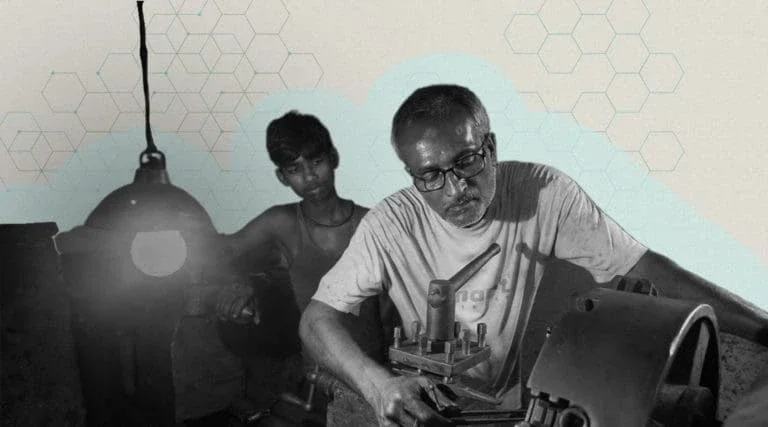
The Role of Philanthropy
The unfolding of this pandemic underscores just how much public sector leadership matters. The CARES Act stimulus package recently passed by the U.S. Congress is roughly 500 times the size of The Rockefeller Foundation’s endowment. No foundation, no matter how large, can supplant the role of government.
It also underscores the role that we believe philanthropy can play in addressing global challenges.
A century before the coronavirus, when The Rockefeller Foundation was just five years old, our partners at Johns Hopkins University and the Rockefeller Institute for Medical Research played a key role in fighting the 1918 influenza pandemic.
What followed was a century of investment by The Rockefeller Foundation to harness the frontiers of science and innovation in service of humanity, building partnerships that made breakthroughs in public health and agricultural research more accessible to everyone.
Now, in the face of the immediate threat of the coronavirus, and the longer-term, more intractable—but no less urgent—threats of poverty and climate change, we believe that the playbook that has served us for over a century, through pandemics, wars, and depressions, can serve us today.
That’s why we invest in science, and help educate and train the next generation of researchers. It’s why we partner with people outside the typical philanthropic space—private companies, investors, academics, community organizations, policy experts, frontline workers, and beyond—to come up with the best, most sustainable solutions to problems that won’t be solved with philanthropy alone. And it’s why we use the tools of the market to help rational economic actors act not only in their self-interest, but also in the interest of the world. This version of philanthropy, which bears little resemblance to the image that comes to mind when you hear the word, is what the Wall Street Journal recently called “the Rockefeller difference.”
One of my goals when I became president of The Rockefeller Foundation was to rededicate this playbook to the fights against poverty, inequality, hunger, preventable disease, and climate change in the United States and around the world. To that end, we’ve made a number of major changes as an institution. We’ve focused our portfolio of initiatives on a few specific areas that we believe, with greater attention and funding, can deliver the greatest results for vulnerable people around the world. And we’ve increased the diversity of our organization and leadership.
We’ve also expanded our approach to convening and bringing people together, both at our Bellagio Center in Italy and through our offices in Asia, Africa, and the United States. We’ve been working to enhance the ways in which our endowment is aligned with our mission, so we can use our investment strategy to increase our impact. And we’ve doubled down on science, data, and technology, and invested in innovative new partnerships, such as Co-Impact, The Rockefeller Foundation Impact Investment Management, and Data.org.
We have also streamlined our efforts to focus on the four areas where we believe we can have the greatest impact: health, food, economic opportunity, and power.
I’ve described the first three in this letter in the context of the coronavirus. It’s only because of our deep investments in health, food, and economic opportunity that we were able to apply our resources, networks, and expertise so quickly to the urgent threat of this global pandemic.
The fourth area, ending energy poverty—while it takes up relatively little space in this letter—will command even more of our attention when this crisis abates. Electricity may seem like a distant concern when so many people, so visibly, can’t feed and take care of themselves or their families. Yet today it’s proving crucial to powering lifesaving ventilators and health care amidst a global pandemic. For many of the 2 billion people who live without reliable electricity, that lack of access is at the root of the poverty and inequality that makes hunger and illness a daily reality. Bringing these 2 billion people into the global economy, not with fossil fuel subsidies but by investing in data and technology and using distributed renewable energy solutions, is the best way to fight both poverty and climate change—the existential emergency of our time.
Months before this virus ended travel, I visited a market in the Indian state of Bihar with our partners and affiliates, Tata Power and Smart Power India. These companies had recently installed a network of solar-powered mini-grids in remote villages across India’s poverty belt, bringing reliable, 24/7 electricity to communities that had never had it before.
It’s hard to overstate the social and economic transformation that had already occurred in just a few weeks. When the sun set, market stalls stayed open and business continued as usual. Machines hummed and appliances whirred.
On that trip, I met a sewing instructor named Ruby Kumari, who was able to teach twice as many students by using power sewing machines and offering later classes. I met an ophthalmologist named Dr. Ajeeth Kumar, who had dramatically reduced his operating costs and increased his productivity. I met a carpenter named Siyaram Pandey, who had purchased an electric lathe, hired two more workers, and increased his profits 20%.

Imagine 2 billion stories like these. This is the future we’re hoping to create.
This is an opportunity on the scale of the agricultural Green Revolution and the invention of the field of public health, which—with the help of this foundation and thousands of partners and grantees—transformed the lives of billions of people around the world.
I’ll have much more to say about these issues in the future. For now, I’ll just say that we are not taking our eye off the ball.
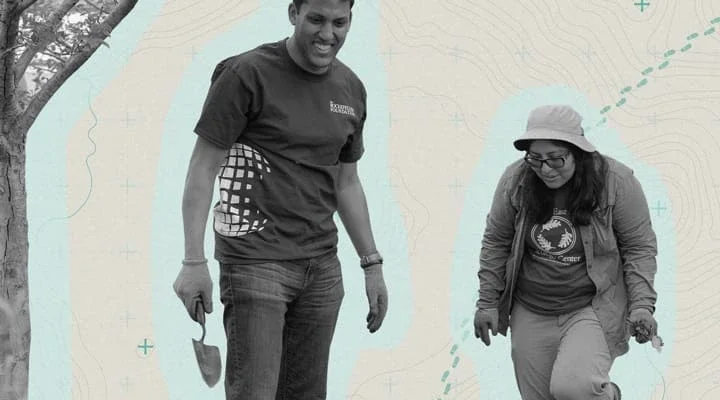
Our People and Partners
On a personal note, I want to thank our team at The Rockefeller Foundation for their tireless work even in so-called normal times—and for their heroic efforts today.
I’ve watched our people put in 12- and 14-hour days, while somehow still finding the time to care for themselves and their families. Many are based in New York City and northern Italy, two of the Covid-19 hot zones, while those in Bangkok, New Delhi, and Nairobi are bracing for the pandemic to spread more widely in South Asia and sub-Saharan Africa. Some colleagues are building public-private partnerships with technology companies, gig workers, and school districts to help feed kids who would otherwise go hungry. Others are working to make safety net benefits more accessible, supporting efforts to keep fresh food markets from closing in East Africa, or crafting innovative policies that could hire and train millions of newly unemployed workers to help fight the pandemic by providing the testing that will allow our economy to reopen. Our team in Asia is helping doctors and public health professionals in China share lessons learned fighting the coronavirus with millions around the world, and in Africa, Italy, and New York, our teams are helping procure and donate personal protective equipment for local health agencies, paramedics, and hospitals.
Our partners have been just as committed. In India and Tanzania, one of our energy partners, Husk Power Systems, has been going to extraordinary lengths to protect and provide for their field workers, who are in turn making sure groceries, clinics, pharmacies, and other essential services have steady electricity during this pandemic. In African countries, our Co-Impact partner Last Mile Health has been working with health ministries to mobilize and equip frontline health workers with essential training and supplies to combat the coronavirus – starting in Liberia, with 4,000 health workers who serve nearly 80% of the rural population. And in the United States, teams from our partner FoodCorps are supporting school nutrition professionals from coast to coast as they work to prepare, pack, and deliver meals to hungry kids at home.
Every day across our Foundation, our team and our partners are working with urgency in this moment of crisis, because they know we can make a difference in the lives and livelihoods this pandemic threatens to destroy. It is an honor to serve alongside them.
Even as the death toll climbs, I’ve started to hear sentences that start with the phrase, “When things go back to normal.” But if we learn anything from this crisis, let it be that the old “normal” is unsustainable for the vast majority of people in the world.
The old “normal” is unsustainable for the billions of people who live in poverty, in countries where social distancing guidelines are laughably unrealistic. It’s unsustainable for the tens of millions of Americans who work full time only to fall further behind every month, and the tens of millions of children at home and around the world without access to nutritious meals.
After we respond and recover from this crisis, we’ll have a chance to rebuild. And in that moment, we should remember that the best antibody against future threats is a world where we protect and support our most vulnerable: where workers can earn enough to meet their needs and save for emergencies, where remote areas have access to economic prosperity, where we end energy poverty in a way that also fights climate change, and where innovation, cooperation, and collaboration across countries and sectors are not the exception but the norm.
Let us channel our energy into building that more hopeful, more humane world, together.

Dr. Rajiv J. Shah
President, The Rockefeller Foundation
